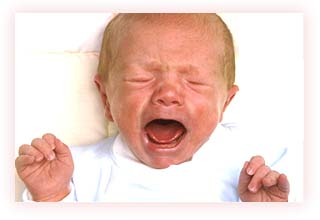Roe v. Wade ... for Men

The National Center for Men searched for a long time for Matt Dubay. Matt Dubay is the plaintiff in the new law suit just filed March 9 in Federal District Court in Michigan, sponsored by the National Center for Men and dubbed by them Roe v. Wade for Men. The suit is actually a motion to stay the court's order that Dubay pay child support. They want to make the point that abortion rights along with birth control, have given women control over whether they want to have a child and be responsible for the raising and expense of that young person for twenty-one years. Men, if they are misled by a feminine partner about her reproductive status, are liable for such costs and have no control. They cannot choose abortion -- it is not their body. And yet, they are being told they have to pay for child support for a child they never meant to father.
That is the story of Matt Dubay, at least his side of it. He says his former girlfriend told him she was unable to conceive. So he never used birth control himself. Then, she ended up pregnant, did not choose abortion, and he is liable for child support under Michigan's laws. This can amount to a quarter to a third of his earnings for 21 years, so it is a pretty big chunk of income. This can seriously cut into his plans for a family with a woman he meets later and wants to have children with. My first reaction, frankly, was, use birth control, dude! But isn't that the response that women got when they asked for abortion rights? And this man, at least claims that he was misled.
While Matt and the National Center for Men do not necessarily expect to win their law suit, they hope to raise some issues and start a discussion. Are men being treated unfairly? Is there any way to treat the genders fairly? Considering how many single mothers fail to seek child support for their out-of-wedlock children, perhaps the current system is not doing the best job protecting children, either. That is the justification for the rule, and would certainly be my reason for keeping Matt and others on the child support hook (including non-custodial mothers, by the way).
The National Center for Men link above, does not include their brief or much of anything helpful. While it is official (if that means anything with this organization), it is not very rich. Try this CNN link for more info. And this AP article by David Crary is quite good and thought-provoking:
State courts have ruled in the past that any inequity experienced by men like Dubay is outweighed by society's interest in ensuring that children get financial support from two parents. Melanie Jacobs, a Michigan State University law professor, said the federal court might rule similarly in Dubay's case.
"The courts are trying to say it may not be so fair that this gentleman has to support a child he didn't want, but it's less fair to say society has to pay the support," she said.
Feit, however, says a fatherhood opt-out wouldn't necessarily impose higher costs on society or the mother. A woman who balked at abortion but felt she couldn't afford to raise a child could put the baby up for adoption, he said.
Jennifer Brown of the women's rights advocacy group Legal Momentum objected to the men's center comparing Dubay's lawsuit to Roe v. Wade, the 1973 Supreme Court ruling establishing a woman's right to have an abortion."Roe is based on an extreme intrusion by the government _ literally to force a woman to continue a pregnancy she doesn't want," Brown said. "There's nothing equivalent for men. They have the same ability as women to use contraception, to get sterilized."
Feit counters that the suit's reference to abortion rights is apt. (snip)
Feit doesn't advocate an unlimited fatherhood opt-out; he proposes a brief period in which a man, after learning of an unintended pregnancy, could decline parental responsibilities if the relationship was one in which neither partner had desired a child.
"If the woman changes her mind and wants the child, she should be responsible," Feit said. "If she can't take care of the child, adoption is a good alternative."
Their argument is apparently based in Equal Protection theories under the Constitution. I have not yet found a copy of the brief in the case.
No comments:
Post a Comment